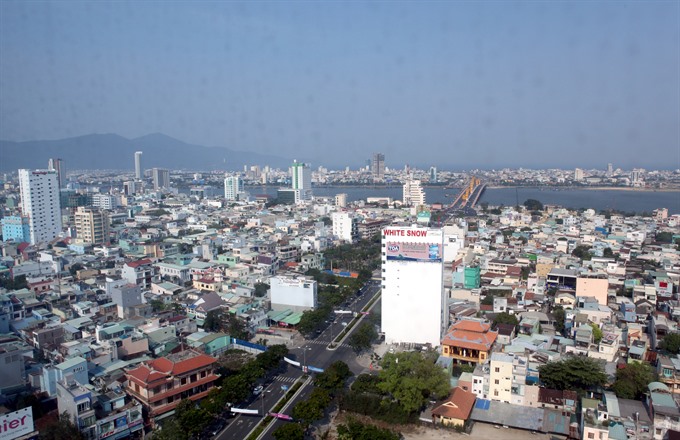 Society
Society

Trần Quốc Thái, deputy director of Urban Development Department, at the Ministry of Construction said at a yesterday seminar in Hà Nội in order to develop smart cities, planning must be one step ahead.
 |
| Đà Nẵng City. Local authorities aim to develop the city into a smart city. — VNS Photo Việt Thanh |
HÀ NỘI — Developing smart cities means officials and planning need to be a step ahead, according to a local official.
Trần Quốc Thái, deputy director of Urban Development Department, at the Ministry of Construction made the statement at a seminar yesterday in Hà Nội.
“Smart cities must meet the criteria of planning, management and provision of smart and comfortable services that are supplied by the State or other economic sectors,” he said at the seminar titled ‘Developing Smart Cities in Việt Nam towards Green and Sustainable Growth’, organised by the Vietnamese Ministry of Construction and Embassy of the Netherlands.
“The building of smart cities requires appropriate institutions on the basis of integrated planning and management, while developing standards for safety, security and social affairs.”
Việt Nam is currently undergoing rapid urbanisation,with 802 urban areas currently and an estimated 1,000 by 2030.
People’s living standards and knowledge have improved when they have access to modern and advanced information technology. However, citizens also face more traffic jams, environmental pollution, accommodation shortages, unemployment, public debt and limited management capacity.
Thái admitted at the seminar, the development of smart cities in Việt Nam still has many problems, including population growth, over-consumption of natural resources, substandard urban infrastructure and inability to cope with climate change, especially in coastal cities.
According to Thái, the State should develop strategic and sustainable planning and assessments on traffic congestion, flood risks, housing, urban finance and environmental issues to solve urban development problems.
Lê Duy Tiến, from the MoIC said the indicators for smart cities are based on the countries with intelligent urban development similar to Việt Nam.
Global trends like urbanisation, climate change, digitalisation, mobility and the depletion of natural resources are dramatically transforming society. Pressure for cities to address these problems is rapidly mounting. By 2050, 70 per cent of the world population will be living in cities. This tremendous growth pressures infrastructure, public facilities, municipal land, houses and jobs.
On the other hand, cities are enjoying increased engagement from their citizens.
Well-informed citizens, with access to relevant data, contribute to solutions by launching neighbourhood initiatives. City authorities also have better relationships with commuters, students, tourists and road users. Incorporating these relationships into a smart city ecosystem ultimately leads to a smart society.
“This global trend also applies to Việt Nam and can be clearly observed. Việt Nam has a large population of 90 million, a young resourceful workforce and is growing at a fast pace. It is also one of the countries most affected by climate change,” said Dutch Ambassador Nienke Trooster.
“Therefore, to ensure that society can cope with future challenges and accommodate growth, to make sure there will be enough work and the right skills are being equipped to the workforce, all while still strengthening economic growth, it is recommended for Việt Nam to not only plan ahead but also plan smarter.”
The Dutch Ambassador shared her country’s experience of having many municipalities develop into smart cities. The country is known for succeeding with a joint approach where cities, companies, the research sector and civil society work together to exchange come up with a strategy together.
The Dutch Ambassador said: “We don’t know exactly what the city of the future will look like. But we do know that certain transitions will definitely take place, like the transition from fossil fuels to renewable energy and a rise in self-driving cars. Resilience also means that a city can accommodate short term upheavals, like a flood. Smart cities offer an architecture for structuring procedures in such a way that cities will be resilient enough to handle all those future developments.”
At the event, Smart Cities Consortium NL of the Netherlands and the Vietnamese Ministry of Construction’s Urban Development Agency signed a Letter of Intent (LOI), to lay the foundation for future co-operation between the Netherlands and Việt Nam on smart cities.
The LOI aims to support the urban development and foster the co-operation of both sides on the exchange of information, know-how, and expertise, a representative of Dutch Embassy in Việt Nam said. — VNS




